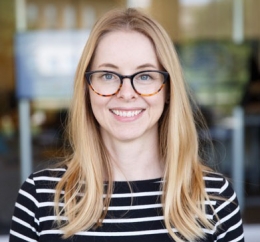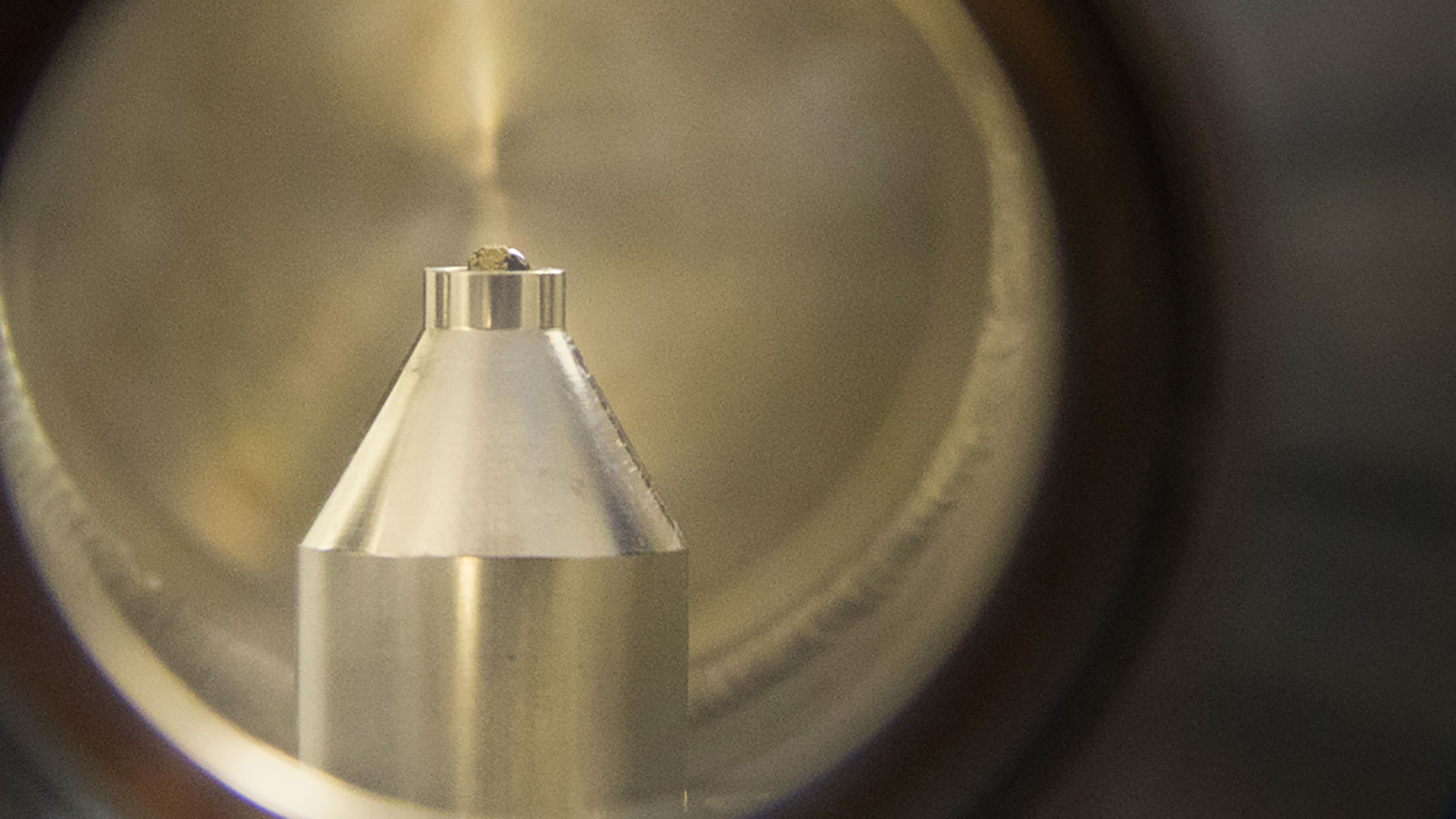INDIANAPOLIS—The Purdue School of Science at IUPUI is proud to announce Catherine Macris, Ph.D., an assistant professor in the Department of Earth Sciences, has been named the inaugural Peter. R. Buseck Distinguished Lecturer for New Directions in Mineralogy and Petrology by the Mineralogical Society of America. The new lectures, given by Macris, will give institutions an opportunity to host speakers they might not normally consider due to budget constraints.

“It’s very gratifying to be recognized in this way for my research. I knew I was taking a risk when I decided to pursue a new and exciting experimental technique for my field. To be named the first Peter R. Buseck Distinguished Lecturer for New Directions in Mineralogy and Petrology, tells me that the risk is paying off and that the research community values the novel work I’m doing,” said Macris.
Macris’s research addresses the physical and chemical changes occurring in planetary materials when they’re subjected to extreme heat.

“This could mean the kind of temperatures that are created by a large asteroid impact on Earth (or the moon or Mars…) or the conditions associated with planet building or moon formation,” explained Macris. “I use an experimental device called an aerodynamic levitation laser furnace to heat small samples (rocks and minerals mostly) with a high-powered laser while they are levitating on a flow of gas from below (think of an air hockey table). This allows me to heat my samples to very high temperatures (up to ~3000 °C) and then study them to find out what kinds of reactions occurred as a result.”
Macris’s lectures, which start this fall, will be held virtually for now with the hope of in-person lectures by spring.
Fall Schedule
- October 7th: University of Toronto, Toronto, Ontario
- October 22nd: Colby College, Waterville, Maine
- November 4th: James Madison University, Harrisonburg, Virginia
- December 2nd: Oak Ridge National Lab, Oak Ridge, Tennessee
Spring Schedule
- January 24th: Texas Tech University, Lubbock, Texas
- January 26th: University of Nevada - Las Vegas, Las Vegas, Nevada
- January 27th: University of Utah, Salt Lake City, Utah
- April 25th: Oberlin College, Oberlin, Ohio
- April 27th: University of Maine - Orono, Orono, Maine
- April 28th: University of Minnesota -TC, Minneapolis, Minnesota
The lectures will include some of the experiments done in her lab to simulate the heat that occurs after an asteroid impact on earth, and how it can be used to learn about past impacts and make predictions for possible future impacts. She will also present a study about how the chemical make-up of planets change as the result of extreme heating during a planet’s formation.
Macris is thrilled to have this opportunity to share her research with other schools, students, and possibly the general public since learning more about the effects of past impacts can help us understand how catastrophic events shaped Earth’s history.
“I love the fact that this lectureship provides funding to support the travel and accommodations of the lecturers to any institution that sends in a request, regardless of size, location, or type. This allows for a new level of accessibility and exposure to cutting edge research for students from all over the country, even at schools with smaller budgets. I’m humbled to be a part of this program and grateful to MSA and Peter Buseck for facilitating this opportunity,” said Macris.